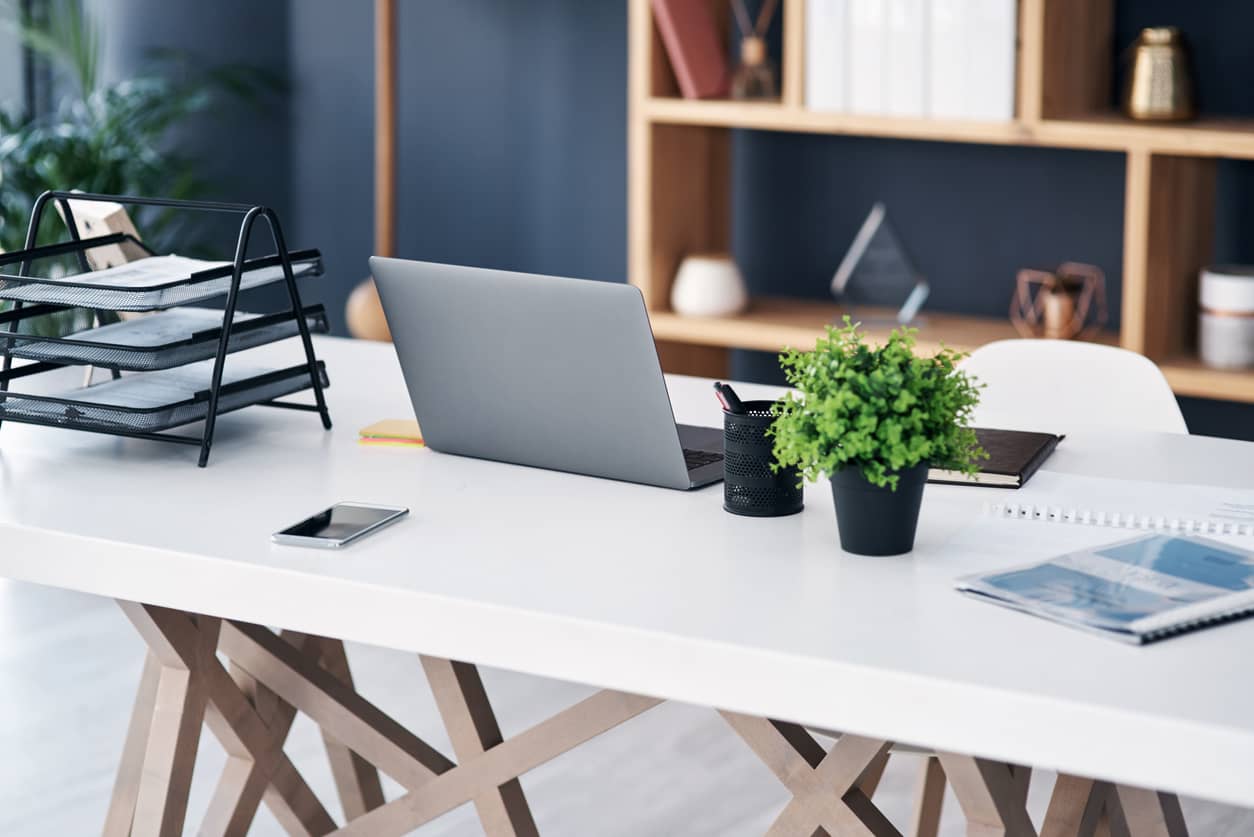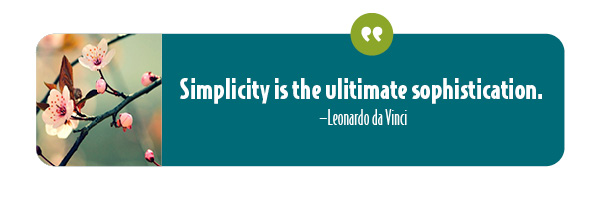Second, only to the bedroom, the office is where you spend most of your time—certainly your waking time. If you’re exposed to something that doesn’t feel right, it can negatively impact you and play out in any number of ways.
There could be a conflict with authority figures, a drop-off in business, employee problems, morale issues, or you may feel like you have reached an impasse and can't seem to move forward. You may have lost your juice around your business or may feel as though there’s something else you should be doing. You might feel you’re underpaid and under-appreciated. Or perhaps you’ve lost your vision or you have no creative spirit. Feng Shui can guide you.
Estimated reading time: 6 minutes
 What Is Feng Shui and How Does It Work?
What Is Feng Shui and How Does It Work?
Feng Shui is based on the principle that a space mirrors what’s going on in your life. A space that feels good will reflect a positive message; a space that is “off” or unsetting will reflect that message. So, if you change your office to reflect something more positive and beneficial, your job situation will have a corresponding change. Although this concept may seem counter-intuitive and unproductive, Feng Shui enables you to create a better experience.
If you talk about your job as “overwhelming” or “frustrating,” you will want to determine where in your office these may be playing out. Do you have stacks of files or too many projects so that you’re feeling overwhelmed? Does a drawer not open properly or a doorknob gets stuck causing you frustration? Then these are the areas you will want to address. Change your space, change your work, change your life.
Although Feng Shui does not present a generic cookie-cutter approach, there are some aspects that should be in place no matter what the goals. Whether a corporate or a home office, there are certain things that are good common sense which can jump-start your way to career success.
Feng Shui Tips: How to Get Your Office to Work for You!
A Feng Shui Checklist
© Carole Hyder 2022

1. Always face the door.
The doorway is an obvious entry point for people but it is also a symbolic entry point for good luck and opportunities. You want to always be prepared to see who’s coming in the door. If you find yourself saying things like “People always talk behind my back” or “I feel like I’m getting stabbed in the back,” then it’s time to turn your desk around. If you can’t turn that desk (or cubicle) around, use a mirror (rearview style) so you will never get caught unaware.

2. Have a high-backed chair.
Following the Feng Shui premise that a space reflects the life of the occupant, look to your chair if you find yourself saying something about feeling unsupported or always having to do things yourself. A chair represents someone “having your back.” When you’re supported, you can relax into confidence and clarity that your leadership will assure you of doing a good job. The back should be high enough so your head can rest against it for ultimate support. This is one item that is worth spending money on.

3. Clear your desk when you leave for the day.
If you hear yourself saying things about losing vision and not being creative, your desk is the barometer for that situation. The importance of having it clear at the end of the day is so that when you arrive in the morning you see a message about expansion and clarity.
Obviously, during the day, the desk needs to be functional—keeping it clear could be frustrating and unlikely. But seeing a desk cleared and ready to go first thing in the morning is a strong message about being in control of work and not the other way around.

4. Throw out one thing a day.
Whether it’s an old business card, an unneeded receipt, a poorly working pen, or an outdated file, make a habit of throwing something out each day before you leave. It is not only a step toward de-cluttering, but it reminds you that you’re in control of what stays and what goes. Besides, it doesn’t take long.

5. Limit the number of family photos.
Having one or two family photos or pictures of a great vacation is inspiring and offers balance to your work environment. Having too many starts to look like clutter, plus it gives the impression you’d rather be somewhere else.
Pick your favorite(s) so you can really relish the memories. When you no longer “see” them, change them up for something else to inspire you.

6. Have empty space.
If there’s one thing that unsettles people, it’s having a corner or an empty spot—the perception being that the office looks bare or unfinished. Just as it’s important to take a breath during a conversation, so should your office. Those opportunities you’re bringing in through the door (remember #1 above) need a place to land. Save them an empty corner or an open spot on your desk.
Related reading: "The Spaces in Between Are Just As Important."

7. Don’t eat at your desk.
Trying to work and eat at the same time does not allow you to appreciate or concentrate on either activity. Aside from the accidental mishaps that can happen when working by your computer, a better idea is to step away and take a breath (as in #6 above).
You will come back re-energized, more creative, and inspired.

8. Have a live plant or flowers at your desk.
In Feng Shui, nature is the model. It reminds us about the meandering journey, about slowing down, about breathing, and about beauty. Having a small token of nature on your desk or in your office somewhere will be a reminder for you to do the same.
Keep the plant or flowers watered or, if you’re using silk flowers, keep them dusted and clean.

9. Keep your clocks on time and your trash emptied.
Both the clock and the wastebasket can remind you about staying current and in the present moment. If a clock isn’t keeping up with you, you may even find yourself saying “I can’t keep up.” Fix or replace it. Make sure the wastebasket is emptied on a regular basis so you aren’t surrounded by old and useless information that you no longer need.
One more thing . . . . . Clutter (Oh, that.)
Clutter and Feng Shui
“I don’t mind the clutter,” said no one ever. Clutter is the number one issue I witness in offices.
I dare say that clutter is an epidemic that affects all aspects of a person’s life, the office is no exception. In fact, it seems that the office is even more prone to clutter—since you don’t live at your office, your standards may be lower than if the stuff was in your living room where you simply would not tolerate having it around.
If you’re saying “I’m overwhelmed” or “I’m buried” or “I feel stuck” and you’re talking about work, clutter is probably the root cause. Clutter can take the form of having too many photos or vacation mementos, too many files on the desk or bulletin board reminders, or too many trinkets. It can make you feel unproductive, inefficient, and unable to move forward. Clutter is a distraction and it definitely does not make you feel like you’re in control.
As each horizontal space in your office gets filled and stacked with things, you become less and less creative—your horizons become smaller and smaller. As you attempt to do your work, you can start to feel cramped, stifled, and blocked.

There are two primary reasons people have clutter:
- they have no time to deal with the stuff that comes in
- they have no space in which to store the stuff.
First, you can refer to #4 above which suggests you throw out one item a day. This is a slow and methodical way of setting up a habit of releasing things when you no longer need them. It’s effective and takes but a moment each day.
Another, and more aggressive, way to deal with clutter is to set a timer for 9 minutes and de-clutter all you can during that time. Do this every day. At the end of the week, you’ve done 45 minutes of de-cluttering. It won’t take long before you see huge results. By organizing and discerning what to keep and discard, you may well discover that you have more space than you thought.
Conclusion
The bottom-line piece of Feng Shui advice is that if you want to be successful, surround yourself with a successful office. This recommendation doesn’t exempt you from doing good work and being conscientious, but having a “successful office” does offer you an enormous amount of support in your endeavors.
Whether you’re an entrepreneur working at home wanting to get your business off the ground or sitting in a corporate office trying to lead a group of professionals toward million-dollar goals, your office can help.

Always ask yourself appropriate questions:
- Does my office look like someone who is successful works here?
- If someone didn’t know me, would they assume I’m extremely successful just by looking at my office?
- Does my office reflect someone who is not afraid of success?
You can ask yourself these questions for each item in your office if you want: Does this painting have a successful vibe? Does this plant represent someone who is climbing the ladder to the top? Does my desk look like someone who’s got things under control?
If you answer “no” to any of these, then figure out why and how you can make a change. Items need to go that are holding you back. Anything broken and unfixable needs to be removed. Anything looking dead or sickly—out.
Finally, the overall question you should be asking about your office and the items in it is: Do I love it? You want an office that inspires you. Sometimes in a corporate setting, you don’t have a final say in terms of wall color or desk options, or artwork. However, you can still make decisions with regard to flowers, pictures on your desk, and special items that remind you of your goals toward success—and of course, no clutter. This is truly getting your office to work for you!
If you enjoyed this blog, don't miss out on the latest!
Sign up for our newsletter.









